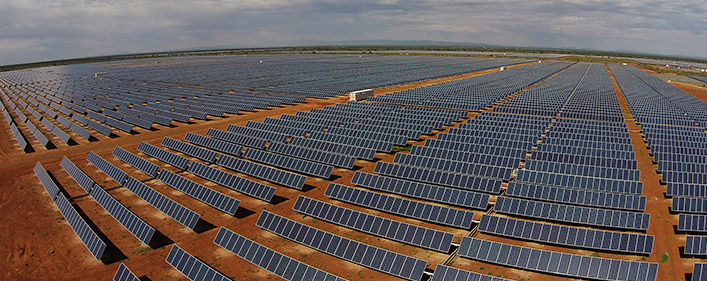Spanish renewable energy project developer, Acciona has started construction on three large-scale PV power plants in Egypt in cooperation with Saudi investment firm, Swicorp.
The facilities will have a combined capacity of 186 MW when complete, and will be owned 50% by Acciona and Swicorp. Overall, the two companies will invest around US$180 millions in the projects, which are being developed under phase II of Egypt’s FIT scheme, and will be located at the 1.8 GW Benban solar complex.
All three of the projects, which will sell power to local utility, Egyptian Electricity Transmission Company (EETC) under a 25-year FIT contract, are being financially backed by the World Bank’s Finance Corporation (IFC) and Asian Infrastructure Investment Bank (AIIB).
For every plant, Acciona will utilize 190,774 polycrystalline silicon solar panels provided by Chinese PV module maker, Astronergy and solar trackers from Spanish manufacturer, STI Norland.
The Benban complex, located in Aswan, southern Egypt, is being developed under phase I and II of
Egypt's FIT scheme for solar and renewables, which has seen the allocation of around 2 GW of solar power.
Development of the program was slowed by a dispute that emerged in March 2016 between the Egyptian Electricity Transmission Company, and international lenders and developers over the arbitration venue for the projects.
In September of last year, however, a new revised phase for the program was announced, which slashed FIT rates and cleared up the arbitration dispute.
This content is protected by copyright and may not be reused. If you want to cooperate with us and would like to reuse some of our content, please contact: editors@pv-magazine.com.




1 comment
By submitting this form you agree to pv magazine using your data for the purposes of publishing your comment.
Your personal data will only be disclosed or otherwise transmitted to third parties for the purposes of spam filtering or if this is necessary for technical maintenance of the website. Any other transfer to third parties will not take place unless this is justified on the basis of applicable data protection regulations or if pv magazine is legally obliged to do so.
You may revoke this consent at any time with effect for the future, in which case your personal data will be deleted immediately. Otherwise, your data will be deleted if pv magazine has processed your request or the purpose of data storage is fulfilled.
Further information on data privacy can be found in our Data Protection Policy.